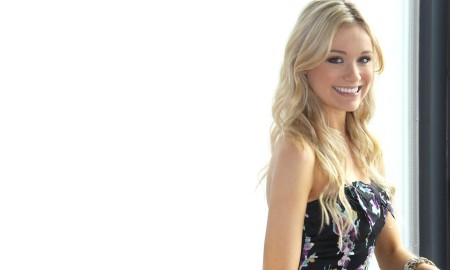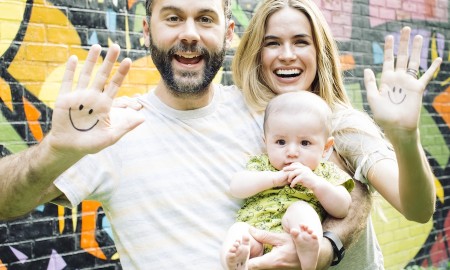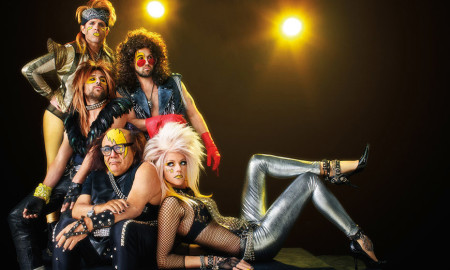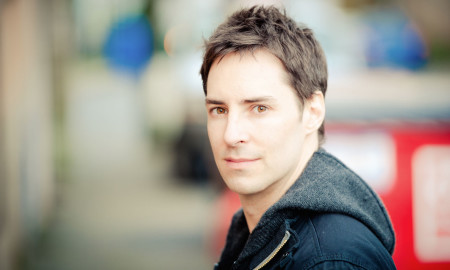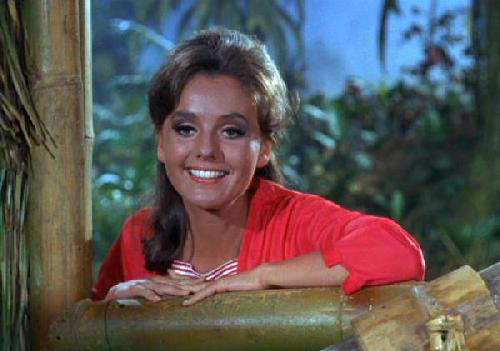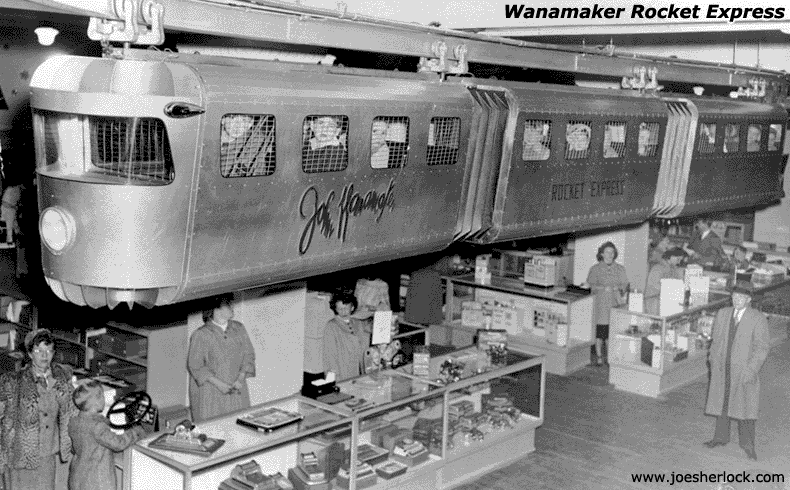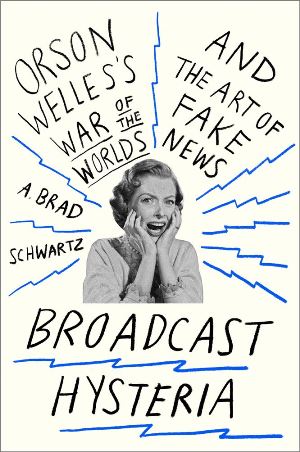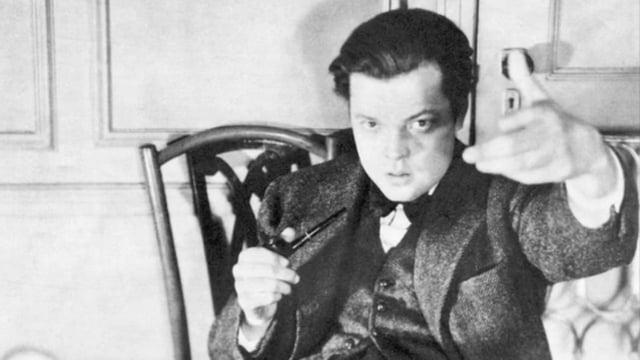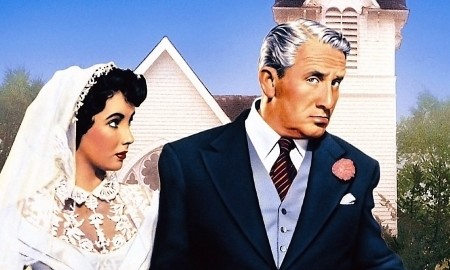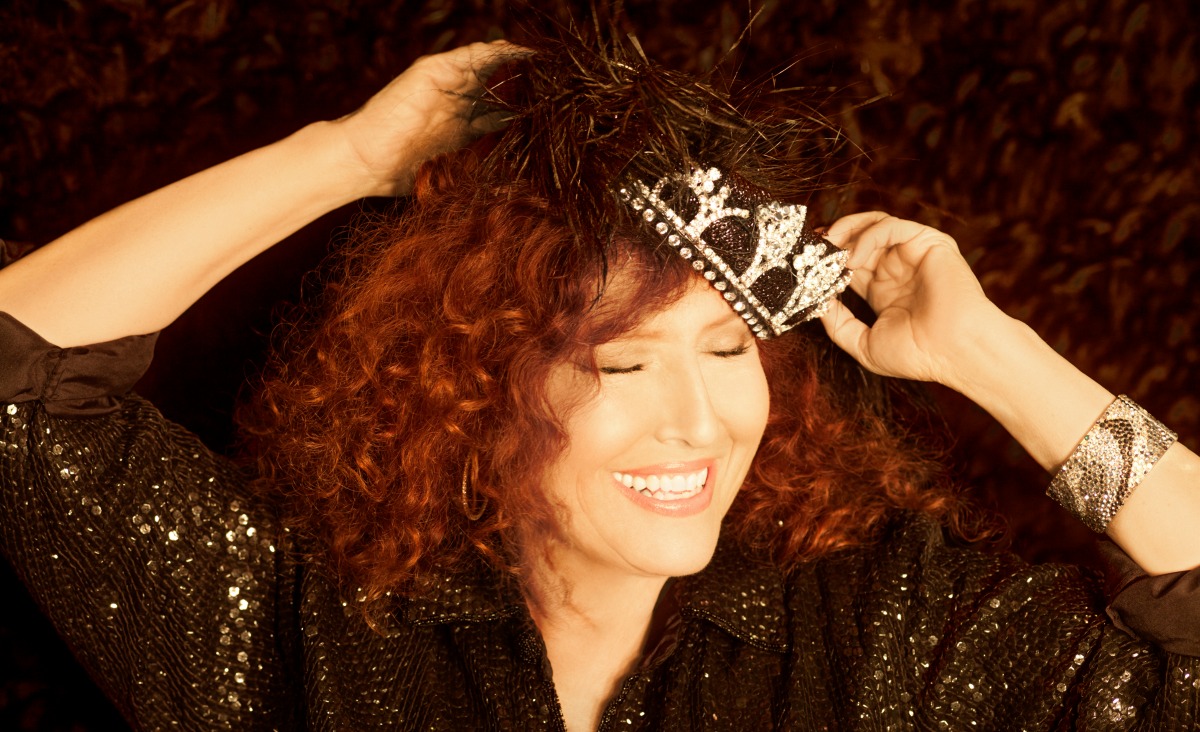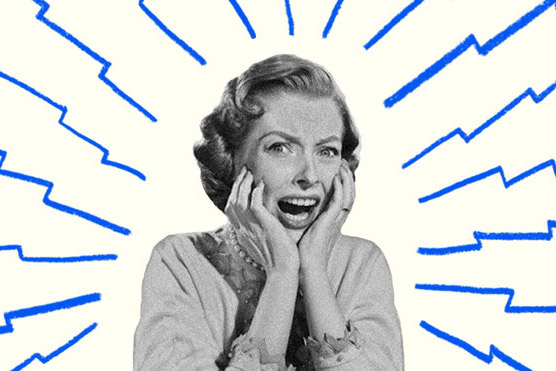

Happy All Hallow’s Eve indeed. On October 30, 1938, Orson Welles and his troupe of fine, serious actors, The Mercury Theater of the Air, broadcast a radio play called War of the Worlds. It was based on the H.G. Wells science-fiction novel, about a hostile Martian invasion of Earth, particularly a pre-Snooki New Jersey (sorry, spacemen, she’s not here yet!).
What happened next makes an Internet meme look like two paper cups held together by a string.
A national panic ensued, to say the least, like the complete opposite of Hands Across America. The growing snowball: this was no stinking radio play; this was real. This was happening! Run for your lives (or, better yet, from your lives)!
It was a serious WTF. For those who tuned in to even a few moments of the broadcast, they were quite sold. The ambitious play featured lots of “reality,” like shrill sirens and urgent news bulletins about flying saucers landing, peppered with overly emotional radio reporters (think “Oh, the humanity!”) and shaken/stirred witnesses claiming, “Yeah, I seen it.”
Holy shit, responded the listeners, and they spread the word, knocking on neighbors’ doors and making breathless calls on the blower. It was worse for those who had not heard the program at all; their imaginations ran away with them, and that was a pretty far country mile. In a Great Depression, imagination and fear and dread are all free of charge.
The next day, a post-traumatic stress and thousands of angry letters reverberated throughout a country that was weary from watching (and hearing) Europe fall to unfriendly invaders of its own.
These letters were collected at The University of Ann Arbor, Michigan, and they’re more than just a hoot. Author A. Brad Schwartz read them over and rethought the entire War of the Worlds phenom. He drilled down, connecting it — and its implications — to today’s Internet, social media, fake news, memes and why, when we are told that Rue McClanahan died for the second time, we damn well believe it.
In our interview about his resulting book, Broadcast Hysteria: Orson Welles’ War of the Worlds and the Art of Fake News, Brad interrupts this program for a special news bulletin.
Dig:
Who was duped and who wasn’t?
First of all, it was a small percentage of the listening audience. A lot of assumptions went into that [a huge part of the audience was duped], and it may or may not be true. It really depended on the listening circumstance, when and how people tuned in.
For example, let’s say you were listening alone. Even if you tuned in late, you were more likely to catch on that things were moving too fast and that the story had a science-fiction element that would not happen in real life.
But some people would run next door and say, “You’ve got to turn on CBS. Something is happening in New Jersey.” Or friends and relatives would call each other to tell them to tune in. Or they were listening with a large group of people.
I’ve noticed that a lot of the most intense examples were on college campuses, because that’s where you have a large concentration of people. All it takes is one person to hear the broadcast and tell a bunch of other people, and then it would spread. It goes viral. They didn’t have Twitter back in those days, but they had telephones. That’s how the fright spread.
Many of these people never heard the broadcast, or only a short segment of it, because once the fright got going, the broadcast wasn’t driving that fear anymore.
So this was the 1930s’ version of “going viral.”
The more things change, the more they stay the same. For seventy-odd years, people perceived the event in one way. Like everyone else of my age, I tend to see the world through this viral-media lens that allows me to see patterns that are so very similar to the way things play out in social media today.
Orson Welles and his Mercury Theater of the Air did not set out to fool people, right?
In later years, Welles would claim [that the prank was intentional], but everybody else who worked with the show went on record [that it was not intentional], even years after the fact, long after there was any reason for them to lie.
Why did so many people get fooled for even a second? It must have been some broadcast!
When you look at how the show developed, through drafts of the script, you can see the changes they made. They thought nobody would think it to be believeable, so they did all these things to make it sound more credible. The only intention was keeping their listeners and not driving them away. You can see how they were changing the script to make it more realistic, more engrossing.
You state in your book that, as a result of this one evening, American broadcasting had changed for good, but not for the better. Can you elaborate?
War of the Worlds was one of a few controversies in the late 1930s over radio, and particularly how the Federal Communications Commission [FCC] would regulate radio. It was a new technology. As Orson Welles said after the show, they were not quite aware of its power.
In Germany, the government took over broadcasting for propaganda purposes and it had very grave consequences. So [Americans] were very uneasy about whether radio was [a tool for] propaganda and could have a similar impact in the United States.
The American people debated as to what role the FCC should have in regulating broadcasting, whether they had some duty or responsibility to police the content of broadcasting, which is a dangerous road to go down.
What was the outcome?
In the later 1930s, because of this fear of broadcasting’s powers and ambitions, [there was a feeling that] broadcasting must be in the public interest. The FCC took that very seriously and opened up the airwaves to unsponsored shows, which went on the air without commercials. The broadcasters paid for this programming out of pocket, which were educational, culturally uplifting and informational; a lot of music programs and experimental dramas. This allowed them to do things like a fake news broadcast that you couldn’t really get away with on a sponsored show.
The American people were very uneasy with an FCC that had that much of a hand in the concept of broadcasting. The FCC, over the next few years, had backed off. As a consequence, a lot of these unsponsored shows went away and broadcasting became much more commercial, a move away from what made 1930s radio so unique.
Today, we have Google, social media, and specific sites that dispel any kind of Internet rumor. On a scary night like this, what did people do for truth and verification? And can a panic like this still happen?
It can still happen. It happens all the time. Back in the 1930s, obviously, they didn’t have Google, but they did have switchboards lighting up at radio stations and police stations and newsrooms. That’s their version of running to Google to verify what they are seeing or hearing.
The problem we have now is, yes, there are sites that allow you to dispel stories that are unreliable, but there is so much information that it’s hard to find anything on the Internet that validates fully. So the onus is now really on the individual to be skeptical.
Are we more sophisticated, cynical and less likely to be duped than the radio listeners of the 1930s?
We are more critical thinkers than they were back then, but we have to be. We have to make those judgments much more often. War of the Worlds serves as a reminder to think critically of what comes through the Internet. This is true for the mass media, too, because the audience can buy into a false narrative too, and they do that all the time today.
What was it like for Orson Welles the next day, after the panic?
I don’t think he was appreciative of it yet. Police were coming into the studio. You could see them through the control room window. He doesn’t know if he’s going to be arrested. He leaves the CBS building and reporters are shouting all these questions at him. They were saying that the show killed people through heart attacks and car accidents.
He gets about three hours of sleep before a press conference. At that press conference, he hasn’t seen the papers; he doesn’t really know what the effect of the show was. He had good reason to believe that the show killed people.
He’s fighting for his life and putting on a performance, in that he is being contrite and trying to tone down any anger that is being directed at him.
On the one hand, he has to say that he can never imagine anyone taking this show seriously. On the other hand, you can’t call the people stupid, because that would inflame things even more.
He’s very masterful in that performance. After a couple of days, the reported deaths failed to materialize, and the editorials in the papers basically came out in his favor. By then, he was able to breathe a sigh of relief. But for a long time, he was uneasy about it. Only later did he appreciate what it had done for him.
War of the Worlds was one of the first nationally shared experiences in the mass media?
Yes, particularly in terms of electronic communication.
One of the very first was in 1933 when Franklin Roosevelt was inaugurated President and you had banks failing all over the country. Through his fireside chats, he declares a bank holiday. He gives a very calm, very measured talk. Something like 60 million people, maybe half the population at the time, tuned in. He explained what the problem was and how his administration planned to fix it.
It had the opposite effect of War of the Worlds in the sense that, instead of causing a panic, it brought a panic to an end. It calmed everybody. That was the first real demonstration of how a leader could directly address the people and have a tremendous effect. That shared experience was a very new thing.
That’s part of the reason War of the Worlds had the effect that it did, because radio was a direct link to things that were going on elsewhere in the country and the world. It changed how people interfaced with the world around them. It’s difficult to imagine today, when we’re all so connected, how different that was. Everything you heard over the radio was happening live, so that’s why War of the Worlds had the effect that it did.

